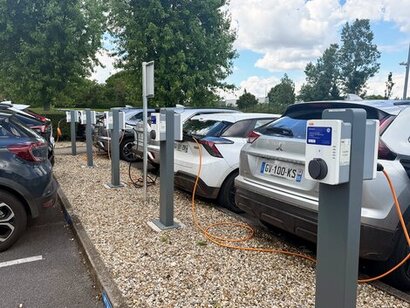
DejaBlue is building a platform to optimise flexible energy loads, including EV charging and on-site solar. The funding will also support development of AI-powered automation for site management and the rollout of new energy contracts designed to favor flexible loads. To support its ambitions, the company will double its headcount from 15 to 30, with a focus on technical roles critical to building its vertically integrated energy platform.
DejaBlue entered the energy space by providing commercial real estate owners, fleet operators, and energy managers with a unified offering through which they can orchestrate their energy assets. Both founders have a deep background in reliably managing and optimising distributed assets at scale from their experience at Google Fi, Uber and Lyft. They are utilising this expertise to connect EV chargers, solar panels, and energy contracts into a single platform - allowing clients to lower energy bills, boost reliability, and make smarter investment decisions across their sites.
“We were blown away by how efficiently the small team around Parker and Baptiste executed and built a best-in-class EV charging solution in record time” said Mira Kamp, Principal at redalpine. “Now, with their move into vertical integration as both a charge point operator and energy retailer, DejaBlue is uniquely positioned to reshape the energy market through load optimisation, demand response, and a seamless end-to-end customer experience that no other provider offers today.”
With energy prices rising and grids growing more volatile, flexible assets like EV chargers and batteries represent an untapped opportunity. DejaBlue is pioneering new types of energy contracts that reward flexibility, especially during the growing midday surplus of renewable electricity. DejaBlue helps businesses take advantage of these moments by shifting EV charging and other loads to times when renewable electricity is abundant and cheap. This reduces energy bills, eases pressure on the grid, and gives renewable producers more consistent demand. It’s a win for everyone: cleaner energy, lower costs, and ensures more regular demand for green energy producers.
“The first wave of electrification was about installations and incentives” added Parker Spielman, co-founder and CEO of DejaBlue. “Now, as EV adoption becomes the norm, energy itself is the bottleneck - both in cost and complexity. We’re turning energy flexibility into a strategic lever for businesses by coordinating solar, charging, and tariffs to reduce their overall cost of energy.”
For additional information:

